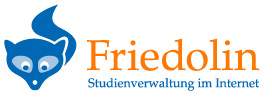| Name des Moduls | [311380] Seminar in Regulation of Financial Markets | Bezeichnung des Moduls | MW26.8 |
| Studiengang | [184] - Wirtschaftswissenschaften | ECTS Punkte | 6 |
| Arbeitsaufwand für Selbststudium | 150 | Häufigkeit des Angebotes (Modulturnus) | jedes Semester |
| Arbeitsaufwand in Präsenzstunden | 30 | Dauer des Moduls | 1 |
| Arbeitsaufwand Summe (Workload) | 180 | ||
| Modul-Verantwortliche/r | JP Dr. Huyen Nguyen, Prof. Dr. Daniel Streitz |
| Voraussetzung für die Vergabe von Leistungspunkten (Prüfungsform) | The exam consists of two parts (points are accumulated with the given weights): A) Group presentation (1-3 students per group): weight 1/3 B) Individual essay: weight 2/3. Subject to change, details are announced at the beginning of each semester. |
| Empfohlene Literatur | Literature will be announced at the beginning of the course. |
| Unterrichtssprache | English |
| Empfohlene bzw. erwartete Vorkenntnisse | Basic understanding of regression analysis |
| Art des Moduls (Pflicht-, Wahlpflicht- oder Wahlmodul) | 684 M.Sc. Economics: Wahlpflichtmodul |
| Zusammensetzung des Moduls / Lehrformen (V, Ü, S, Praktikum, …) | Seminar (2 h per week) |
| Inhalte | The seminar discusses seminal empirical papers on how law and regulation affect activities in financial markets and how financial markets affect the real economy. The topics cover but are not limited to:
|
| Lern- und Qualifikationsziele | Students are able to critically discuss empirical papers in banking and financial markets. Students understand why regulation in financial markets affect banks and financial institutions. Students understand the current stage of development in banking and financial markets. Students are able to interpret regression models and link these results to scientific papers. Students have insights into several common data sources in banking literature. Students are able to write a research proposal on a chosen topic. A research proposal should reflect how students understand current gap in the banking literature. Students will be able to propose research hypotheses and an appropriate empirical methodology to test research hypotheses. |


